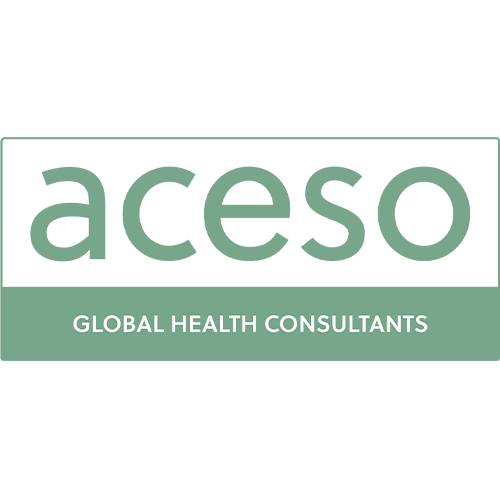
Forget About Business as Usual – What About Vaccination as Usual?
Written by Charlotte Lewis
References:
-
A brief history of vaccination, The Immunisation Advisory Centre [External Link] https://www.immune.org.nz/vaccines/vaccine development/brief-history-vaccination
-
WHO and UNICEF warn of a decline in vaccinations during COVID-19, WHO, July 2020 [External Link] https://www.who.int/news/item/15-07-2020-who-and-unicef-warn-of-a-decline-in-vaccinations-during-covid-19
-
Public Health England. Measles in England. Public health matters. 2019. [External Link] https://publichealthmatters.blog.gov.uk/2019/08/19/measles-in-england/.
-
Impact of COVID-19 on childhood vaccination counts to week 4 in 2021, and vaccine coverage to December 2020 in England: interim analyses, Health Protection Report Volume 15 Number 3 2 February 2021 [External Link] https://assets.publishing.service.gov.uk/government/uploads/system/uploads/attachment_data/file/961539/hpr0321_chldhd-vc_wk4d.pdf
-
Din, M., Ali, H., Khan, M., Waris, A., Ullah, S., Kashif, M., Rahman, S. and Ali, M. (2020), Impact of COVID‐19 on polio vaccination in Pakistan: a concise overview. Rev Med Virol. [External Link] https://doi.org/10.1002/rmv.2190
-
Din, M., Ali, H., Khan, M., Waris, A., Ullah, S., Kashif, M., Rahman, S. and Ali, M. (2020), Impact of COVID‐19 on polio vaccination in Pakistan: a concise overview. Rev Med Virol. [External Link] https://doi.org/10.1002/rmv.2190
18 months on from the start of the pandemic, and with successful COVID-19 vaccine programmes rolling out across the world, are we actually in a better position to tackle other vaccine preventable diseases? In the words of the WHO slogan for World Immunization Week, ‘Vaccines bring us closer’, but has COVID-19 in fact pushed us further away from being able to protect the world’s most vulnerable from vaccine-preventable diseases?
The practice of immunisation has existed for centuries; from Buddhist monks drinking snake venom in an attempt to build immunity against snake bites to the birth of modern-day vaccinology with Edward Jenner’s development of the smallpox vaccine in 1798 (1). Outstanding scientific progress has been made over the last two centuries to combat infectious diseases that have threatened those most at risk. The eradication of smallpox in 1980 is testament to what can be accomplished by a robust vaccination programme, for example.
Whilst World Immunization Week is a time to remind ourselves celebrating what immunological feats we can accomplish, it is also the perfect moment to reflect on those who do not have access to such protection. According to the World Health Organisation (WHO), the likelihood that a child born today will receive all recommended childhood vaccines by the age of 5 stands at less than 20% (2). In other words, 20 million children in the world today are not able to receive the vaccines they need to live a life without risk of severe illness from preventable disease; the majority of these children reside in the global south.
Since the outbreak of COVID-19, the world has been rocked by loss of life and damaging economic downturns. Global vaccination programmes, particularly those targeted at children, have been deprioritised as a result. According to a survey conducted by UNICEF, the World Health Organisation (WHO), and GAVI, three quarters of the 82 countries that responded reported COVID-19-related disruptions to their immunisation programmes as of May 2020 (2). The reasons cited for these disruptions included low availability of personal protective equipment for health workers, local travel restrictions and the redeployment of health workers to COVID-19 patients. Even when vaccine services were available, appointment attrition was commonplace as those scheduled to attend were frightened of contracting COVID-19 (2).
Even before the pandemic, there were problems with vaccination rates in the UK. This was evidenced by the UK losing its measles ‘elimination status’ not long after achieving it in 2017 as the transmission rates increased in 2018 (3). Yet it is likely the pandemic will only exacerbate this seemingly downward trend in uptake. A report by Public Health England found that since the start of the pandemic, significantly fewer infants have completed the full course of scheduled vaccines by six months and 10.5% fewer children have received the MMR vaccine at the end of January 2021, compared to the same time in 2020 (4). The report suggested that this decrease in vaccination may be in part due to the ‘stay at home’ order, which conflicted with other public health messaging that encouraged parents and caregivers to take children to routine immunisation appointments.
While disruptions to UK routine vaccinations will take concerted effort to address, it is likely that disruptions in lower-income countries will have far more devastating and longer lasting effects – particularly in localities where vaccine-preventable diseases remain endemic. It remains to be seen how the pandemic might affect levels of polio in regions such as Pakistan, Afghanistan and Nigeria, for example: by April 2020, Pakistan had suspended all vaccination campaigns and since then 40 million children have failed to receive their polio vaccination, for example (5).
If we examine past large-scale, infectious disease outbreaks in lower-income settings, it is clear that all too often mortality from vaccine-preventable diseases increase in parallel. For example, during the West-Africa Ebola outbreak the majority of infection‐mediated deaths occurred due to contraction of malaria, measles, tuberculosis, and polio amongst those who had not been able to receive a vaccine or receive the care they required at the time. In fact, the number of excess deaths caused by malaria, measles, tuberculosis, and polio – all of which can either be vaccinated against or prevented via prophylaxis - exceeded the deaths caused by Ebola itself in the outbreak (6). Although it will take time to establish whether deaths caused by vaccine-preventable illness will outweigh those caused by COVID-19, we must learn from these patterns of the past and take action to protect those most likely to be at-risk.
Over the past year we have witnessed globally unprecedented levels of investment into new research and development for vaccine technologies; these investments have accelerated immunology to the point of ‘warp speed’. While so much has been done to bring us out of the current pandemic we face, in this World Immunization Week, it is vital we stay vigilant to the progress that must still be made to ensure that inoculation leaves no person - and no illness - behind.
